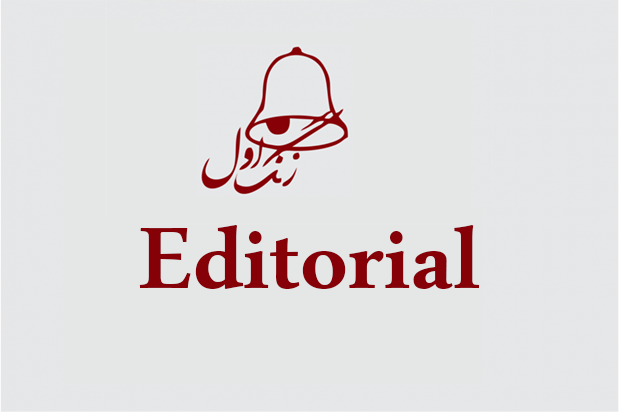The National Islamic Movement’s confrontation with the government over the appointment of a new governor for Faryab province has entered a complex phase. The government and the National Movement party are reportedly unprepared for flexibility, and both stand firm on their former positions. If the dispute in Faryab is not addressed through dialogue, there is a possibility of an armed conflict between the two sides.
About a month ago, President Mohammad Ashraf Ghani appointed Mohammad Daud Laghmani as the governor of Faryab. Laghmani, the former mayor of Lashkar Gah, capital city of Helmand, officially took office yesterday at an army base on the outskirts of Maimana. Protesters who had closed the door of the Faryab governor’s office building did not allow him to enter.
The events surrounding the appointment of a new governor for Faryab over the past month or so show that the government and the National Movement Party have not come to terms. Supporters of the National Movement Party have been protesting in recent weeks in various provinces, including Faryab, Jawzjan, Samangan, Takhar and Balkh, to protest the appointment of a new governor for Faryab. They stressed that, firstly, the governors should be elected and, secondly, the person appointed by the government should be familiar with the socio-political contexts and the conditions and geography of their mission. Protesters say Mohammad Daud Laghmani is not fit to carry out missions in the province due to the high security threats in Faryab.
On the other hand, the government has not yet listened to these protests and has stood firm in its decision. According to this decision, Mohammad Davood Laghmani left for Faryab on May 15 but his plane was not allowed to land. The plane carrying Laghmani then diverted to Mazar-e-Sharif and managed to enter Faryab two days ago.
Laghmani’s inauguration from an army base as governor in Faryab is a symbolic move to show off the army’s strength against the protesters. The message of this symbolic action is that if the protesters stop his work, the government will use force.
On the other hand, Abdul Rashid Dostum urged members of the Movement Party and his supporters to prevent Mohammad Daud Laghmani from entering his office as governor. He even permitted the supporters of the National Movement Party to shoot. Dostum said that the Afghan Turks are not alone and that many countries, including Turkey, are currently supporting them. He called on the people to resist the government’s decision.
Concerns have been raised about the possibility of an armed confrontation between the two sides, given that there is no sign of flexibility in the decisions and actions of the government and the National Movement Party. If the government wants to use force to make its decision, it will receive a violent response. This readiness is evident on the National Movement party front, and the government must exercise caution in its subsequent actions.
According to reports, the Abdullah Abdullah (Chairperson of High Council for National Reconciliation) faction was not consulted in the appointment of a new governor for Faryab and the removal of its former governor. This action was proposed by the Independent Directorate of Local Governance and approved by the presidency without referring to the text of the political agreement of May 17, 2020. In this respect, the President’s decision to appoint a new governor and his insistence on taking the post can be criticized and challenged.
The Political Agreement of the current Participatory Government explicitly states that “the governors of the provinces are nominated according to a rule agreed upon by both parties (Ghani and Abdullah).” Although this rule is not yet clear, political custom dictates that Faryab belongs to the Abdullah faction. Therefore, it is very unwise to ignore the faction in appointing a governor for Faryab.
Given that the socio-political situation as well as the security situation in the country is very fragile, it is better to resolve the controversy in Faryab through dialogue. Also, the Ghani faction should not divert discussions on the appointment of governors, but should allow this to be done within the framework of the May 17 Political Agreement. The power-play of the government and the National Movement Party against each other is both condemned. The use of violence is by no means the solution to the Faryab controversy. It is natural that violence can complicate matters. Hence, the only possible solution is dialogue and agreement within the framework of the above political agreement, which is the basis for the formation of the current government.












